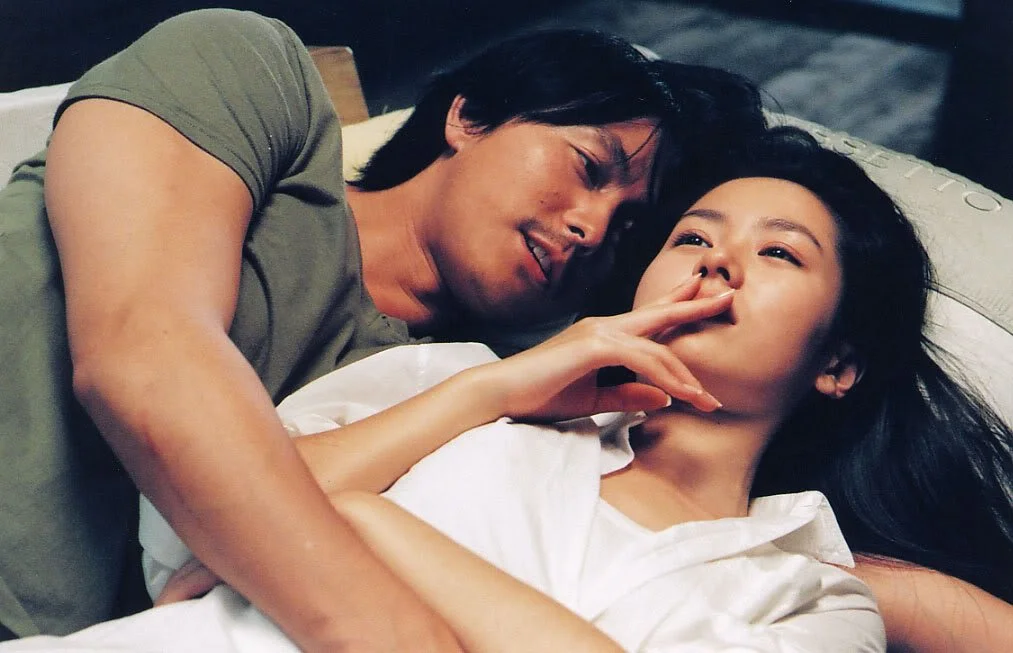Burning (2018)
A metaphor you’ll be burning to discuss.
Presentation:
Filmed on Arri and Zeiss, I am naturally a big fan of this combination. The film uses mostly natural light but manages to capture some beautiful frames particularly at blue hour. Handheld movement provide and engrossing experience due to impeccable framing. The film proves you don't need fancy grades when you have beautiful natural lighting. Lee Chang Dong masterfully crafts a tight psychological Korean mystery. He succeeds in making a perfectly ambiguous story with great performances from its talented cast. Despite cultural differences, the protagonist is extremely relatable and you have a real connection. This film perhaps exceeds Parasite in the sense that it leaves you with a much bigger impact as there are so many possible interpretations. There are some films that try too hard to snatch Oscars and are self congratulatory in their artistic circle, but this film actually effortlessly incorporates such themes. This film could be a work of literature and there are many interpretations but in a wonderful way that makes you immediately want to talk and research more about it.
Analysis:
My interpretation of the film is it is a multi layered metaphor. I don’t interpret it as a literal story suggested by some key choices of dialogue but on first viewing can be interpreted that way. Haemi is a metaphor for hunger. She performs the hunger dance and references little and great hunger, which symbolizes drive, ambition and purpose. The conflict between Ben and Songsu can also be seen as a metaphorical struggle for such search for purpose in modern times. In nearly every interaction, the characters are always eating and drinking. Ben doesn’t cook or eat because he has to - he does so out of fun, an "offering", and so he offers hunger (Haemi) to the gods, which he explicitly states as a metaphor. Songsu for a majority of the film is represented as incompetent, naive and unambitious - not hungry. He regularly fails to answer the call (phone calls) and fails at noticing Haemis many signs of love. In the beginning he apparently also called Haemi ugly, not recognizing her and their interactions in the past, however this characterization is not reliable due to Haemi's dubious past. This can also symbolize his journey in writing. But throughout the second half of the film he is regularly snacking, eating as well as running suggesting his hunger has grown. He wants to search and satisfy his hunger (symbolized by Haemi) and will search for meaning and purpose by investigating Ben. Ben can be seen as the upper class of disparity, the promise of a false American dream stilted by a low unemployed rate discussed on tv. He has it all, yet he is depressed and bored. He has no hunger because he has killed it, which ends up being a high for him like smoking marijuana. Songsu burned his mother’s clothing, when Haemi takes off her clothes, Songsu also burns her calling her a whore and also killing her as symbolized by an immediate dream of burning a greenhouse. Then he burns his own clothes when murdering Ben, a bit of a catharsis and karma. This burning can be symbolized as a closure and acceptance and freedom. Songsu can finally write, it is unclear whether the final scene is a manifestation of his writing, or the murder did take place, or perhaps a metaphor of his journey.
Ultimately this film is a Korean take on the American dream, which has a distinction in which both the rich and poor are disillusioned, lacking the hunger in a modern world. The journey to the top of the social class isn't as romanticized as people dreamed it would be. The poor will always be jealous of the Gatsbys, but even Ben explicitly admits feeling jealous of Haemi's love for Songsu, the poor have hunger but it is better than feeling nothing. Much like politics played out in real life, the poor will blame the rich for all their problems and want their blood for it. And this film is still ambiguous whether it is rightly justified. The grass is greener with the rich also unable to find happiness, a case of disillusionment and wanting what we don't have. An insatiable hunger. A combination of 2 short stories by Faulkner and Murakami called Barn Burning in perfect execution.
Conclusion:
One of the best Korean films you could watch, but requires quite a bit of brain power and an appreciation for literary themes and metaphors. This film requires 2 viewings. The first can be seen as a thriller the second as something much more. The movie is a film within a film and possibly several ways to interpret it. It's quite extraordinary how well the story is presented, the script for this film is already on par with literature.
Sort by
- action 80
- adventure 52
- animation 28
- biographical 39
- chinese 14
- comedy 56
- coming of age 21
- crime 84
- culinary 8
- detective 17
- documentary 7
- drama 250
- driving 7
- experimental 17
- fantasy 49
- french 10
- german 3
- heist 9
- historical 26
- horror 66
- japanese 10
- korean 11
- lgb 3
- music 17
- mystery 79
- norwegian 1
- psychological 34
- romance 48
- russian 1
- satire 16
- sci-fi 56
- spanish 6
- sports 7
- superhero 9
- suspense 23
- swedish 1
- thai 1
- thriller 137
- war 21
- western 10
- zombie 5
- 🌶 3
- 🌶🌶 31
- 🌶🌶🌶 144
- 🌶🌶🌶🌶 205
- 🌶🌶🌶🌶🌶 61




































Welcome to uncanny valley.